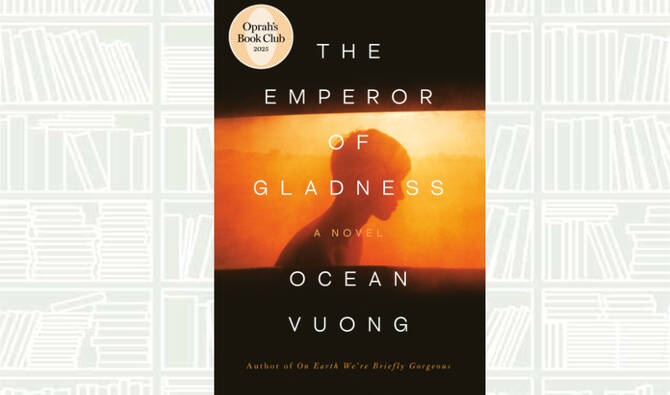Author: Ocean Vuong
As an avid reader, I often search for books that not only tell compelling stories but also touch the depths of my soul.
Ocean Vuong’s “The Emperor of Gladness’ is a book that captivated me in ways I did not expect. From its opening pages, I knew I was in for a transformative experience.
Vuong, a Vietnamese-American poet and novelist, is known for his lyrical and poignant style that explores themes of identity, family, and the immigrant experience.
His debut novel this year follows the success of his award-winning poetry collections, including “Night Sky with Exit Wounds,” which garnered critical acclaim and established him as a significant voice in contemporary literature.
Reading “The Emperor of Gladness” felt like embarking on an emotional journey that resonated deeply with me. Sometimes you do not just read a book; you bleed through it.
Vuong’s lyrical prose enveloped me, drawing me into the intricate lives of his characters. I found myself captivated by their struggles and triumphs, each story reflecting the complexities of identity and family ties.
This is my second five-star book of the year, and the magic of it still lingers, like an unsolved riddle in the back of my mind.
Vuong has a remarkable ability to weave together themes of love and trauma, striking a chord that reminded me of my own experiences searching for belonging.
His vivid imagery made me feel as if I was walking alongside the characters, experiencing their joys and sorrows firsthand.
I was particularly moved by how he portrayed the Vietnamese-American experience, capturing the nuances of culture and the weight of history. Each character felt real and relatable, navigating their paths in a world that can often feel isolating.
What stayed with me long after I finished the book was the tenderness with which Vuong approached his characters. This novel is not just a story; it is an exploration of what it means to be human, to love, and to endure.
Overall, “The Emperor of Gladness” is a beautifully crafted work that left a lasting impact on me. I highly recommend it to anyone who appreciates lyrical storytelling and the exploration of identity.
















